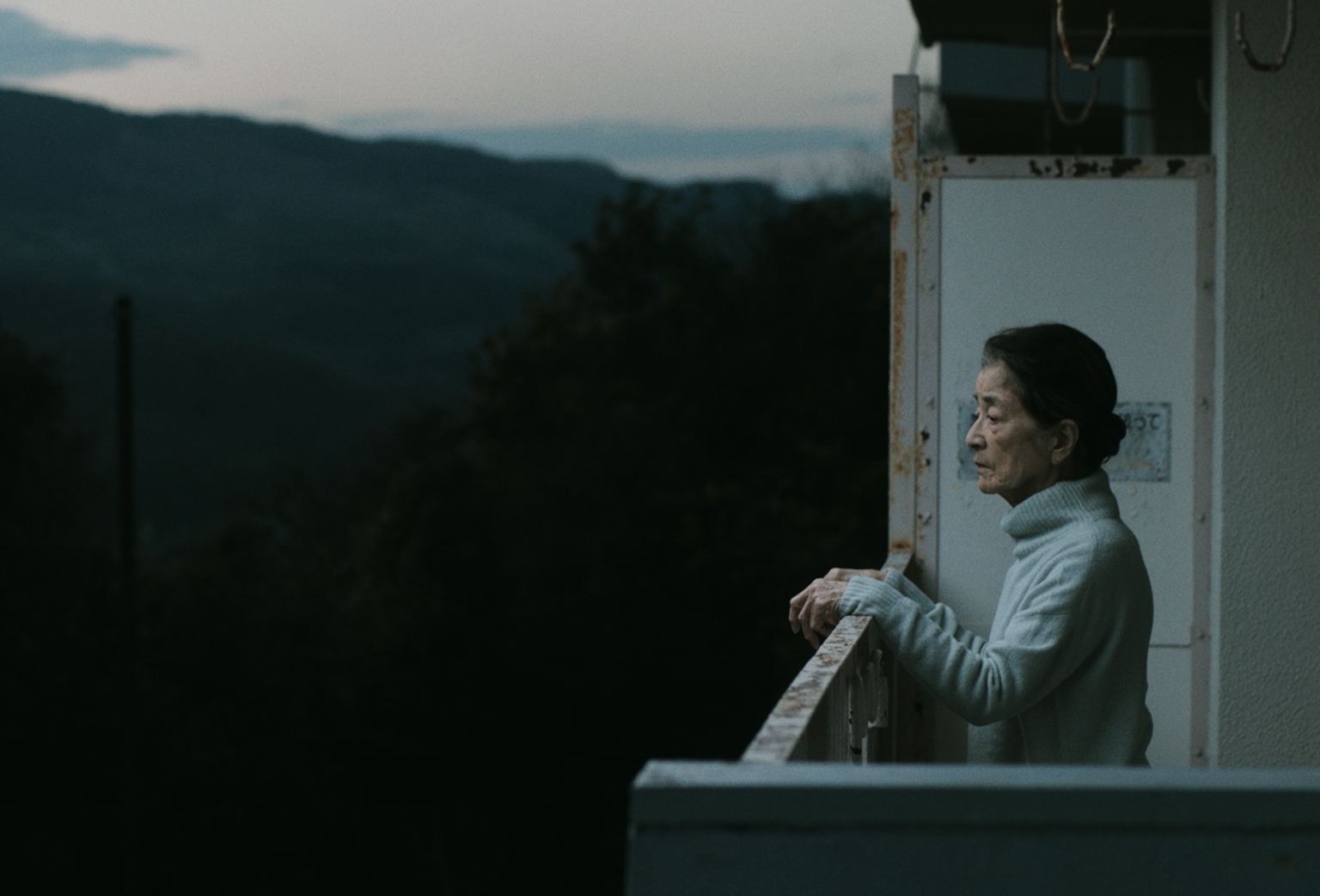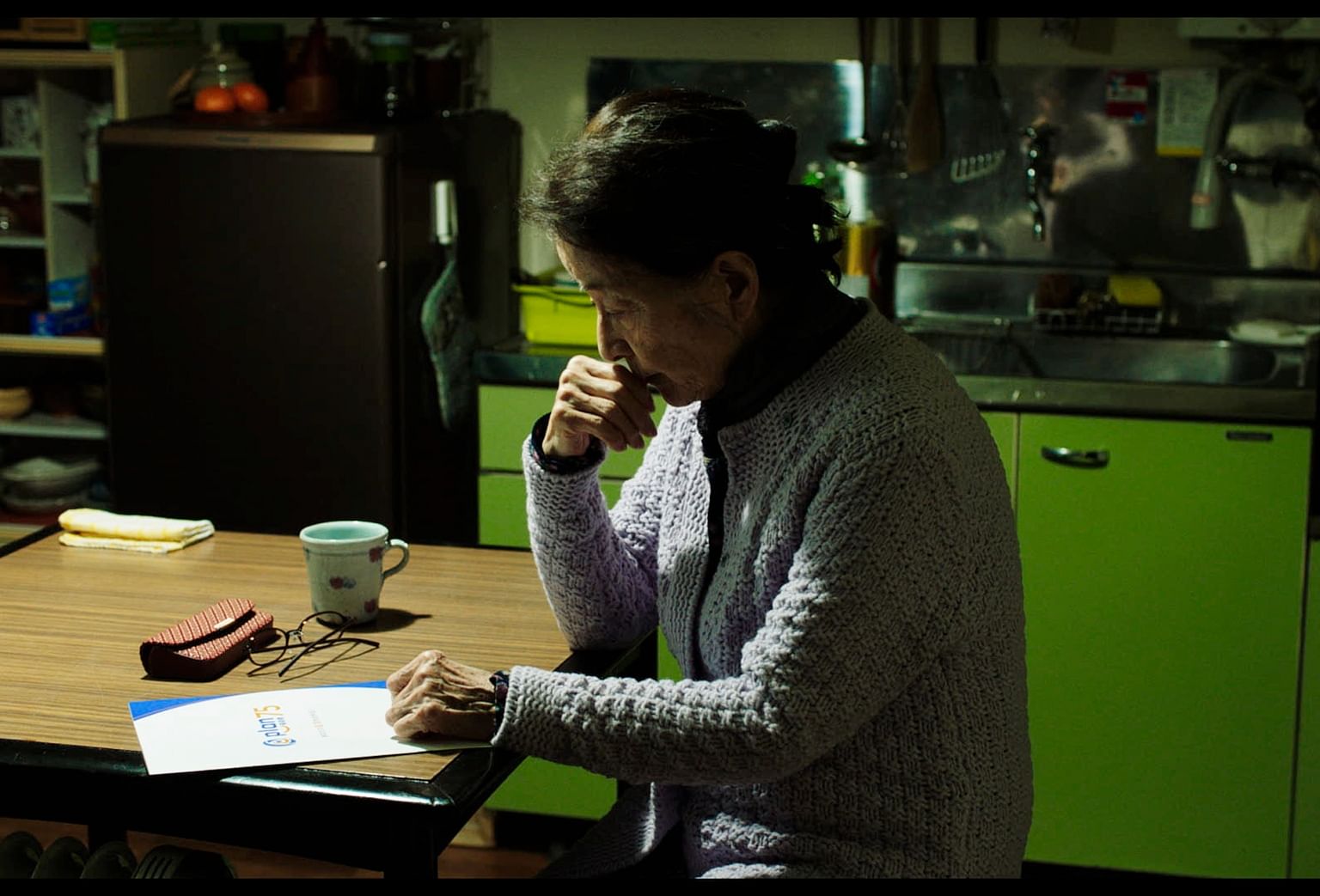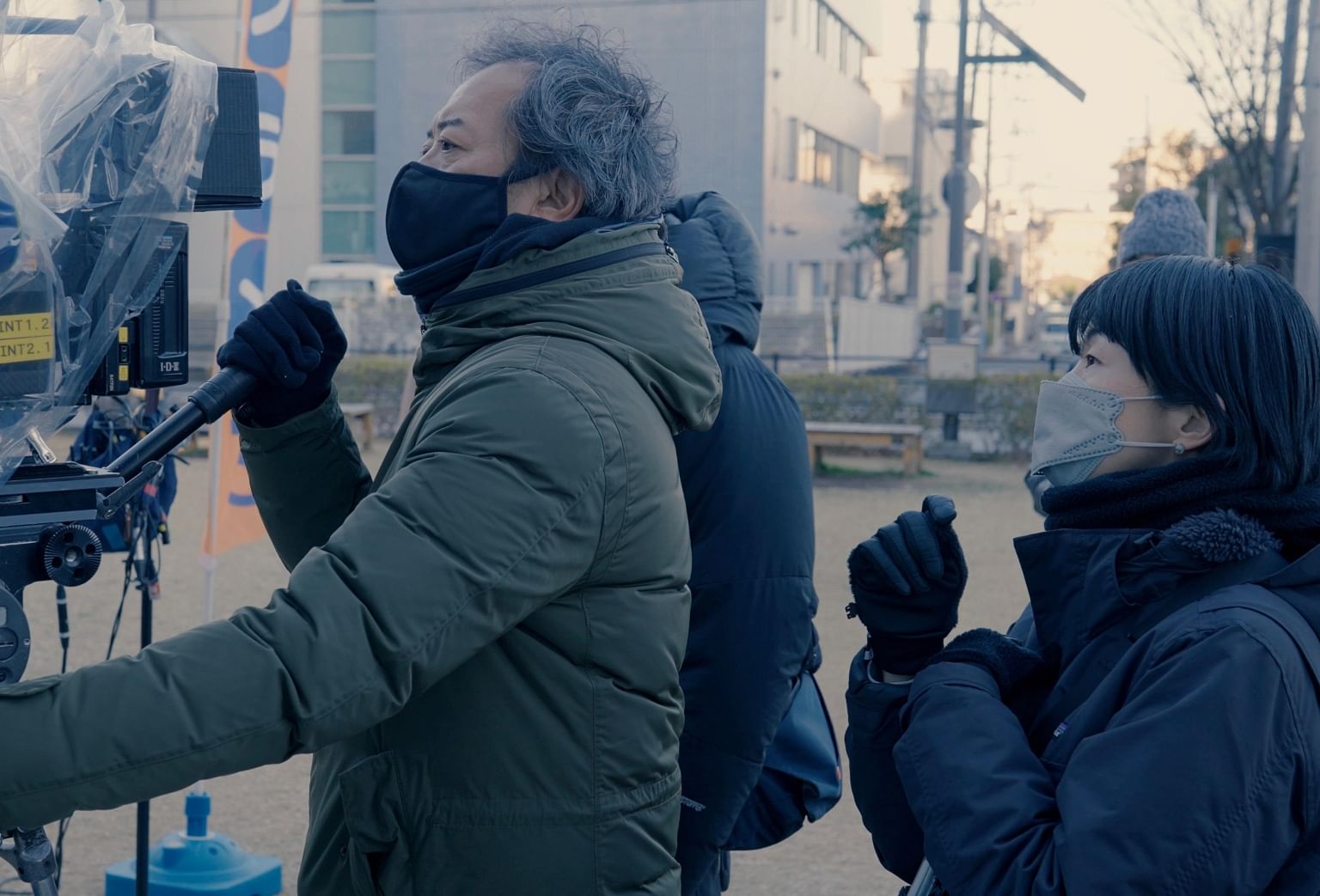Japanese film Plan 75 about the elderly 'scarier than a horror movie', says director
Sign up now: Get ST's newsletters delivered to your inbox

A still from from the film Plan 75 starring Chieko Baisho.
PHOTO: LIGHTHOUSE PICTURES
Follow topic:
Plan 75 is set in a Japan that looks like contemporary Japan, but with one difference.
In this parallel world, the government has launched the scheme of the film's title. It encourages those reaching the age of 75 to end their lives so as not to burden relatives or the state.
State-run voluntary euthanasia facilities process check-ins quietly and painlessly. Enthusiastic promoters hand out leaflets along parks and streets, sign-up forms at the ready.
One perk of the scheme? Free minutes with a paid friend chatline, so that in a lonely participant's final days, the warmth of companionship can be felt one last time.
Opening exclusively at The Projector on Aug 25, Plan 75 is Japanese writer-director Chie Hayakawa's first feature.
At the Cannes Film Festival in May, the dystopian drama won the Special Mention award in the Camera d'Or competition and was selected to screen in the Un Certain Regard section.
In an e-mail interview with The Straits Times, Hayakawa, 46, speaks about how the independent movie has struck a chord in its home country.
According to industry publications, three weeks after its release in mid-June, the film hit the 200 million yen (S$2 million) mark at the box office, while also increasing the number of theatres showing it.
"People have said that it's a scary movie, scarier than a horror film. Many Japanese are anxious about old age. Young people worry about how to survive when they get older. It's becoming a national phobia," she says.
Plan 75 places no moral judgment on those who freely choose to euthanise themselves, due to reasons such as terminal illness. The focus is on the implications of a campaign which, whether it means to or not, causes citizens to despise the weak, she says.
According to a paper published by the European Parliament in 2020, Japan, with its median age of 48, is now the world's most rapidly ageing country. One in four people is aged 65 or older.
Its policies offer a case study for Europe and other countries dealing with the issue of falling birth rates and growing numbers of the elderly, according to the paper.
The film follows three characters: elderly woman Michi (beloved veteran actress Chieko Baisho), who lives alone; Hiromu (Hayato Isomura), an official working in the Plan 75 department; and Maria (Japanese-Filipino actress Stefanie Arianne), a migrant worker in the healthcare sector.

In the film, the government launched a scheme encouraging those reaching 75 to end their lives to not burden the state.
PHOTO: LIGHTHOUSE PICTURES
There is growing resentment towards the elderly and disabled, says Hayakawa.
She cites the case of the murderer who in 2016 went on a spree in a special needs home, killing 19 because, as he explained later, he wanted to rid the world of useless people.
He is not alone in thinking this way, she says.
"Our capitalist society values productivity and divides people into those with worth and those without," she says. "The anxieties about ageing, and the intolerance shown towards the elderly, inspired me to make the film."
She chose to set Plan 75 in contemporary Japan, rather than in a futuristic society as others have done when dealing with ideas about Orwellian governments seeking to purify the population through eugenics.
"There is no Plan 75 yet in real life, but I wanted to make the audience feel it could happen at any time."

The film's Japanese director of photography Hideho Urata, 54, has been based in Singapore for the last 12 years and is a senior lecturer in film at Lasalle College of the Arts. Plan 75 is his first collaboration with Hayakawa, after being introduced to her by colleagues.
Urata was also a cinematographer on Singaporean film-maker Yeo Siew Hua's noir thriller A Land Imagined (2018), winner of the top Golden Leopard prize at the Locarno Film Festival.
Speaking to The Straits Times in a telephone interview, he says Hayakawa's quest to have the film look like it takes place in a "normal everyday world", rather than a futuristic one, drove him to make use of naturally available sunlight - and that meant he had to be strict with time management.
"So if I say, we can shoot from 4 to 6pm, to get nice highlights, that is when we have to organise around that timing," he says.
- Plan 75 opens exclusively at The Projector on Aug 25.

